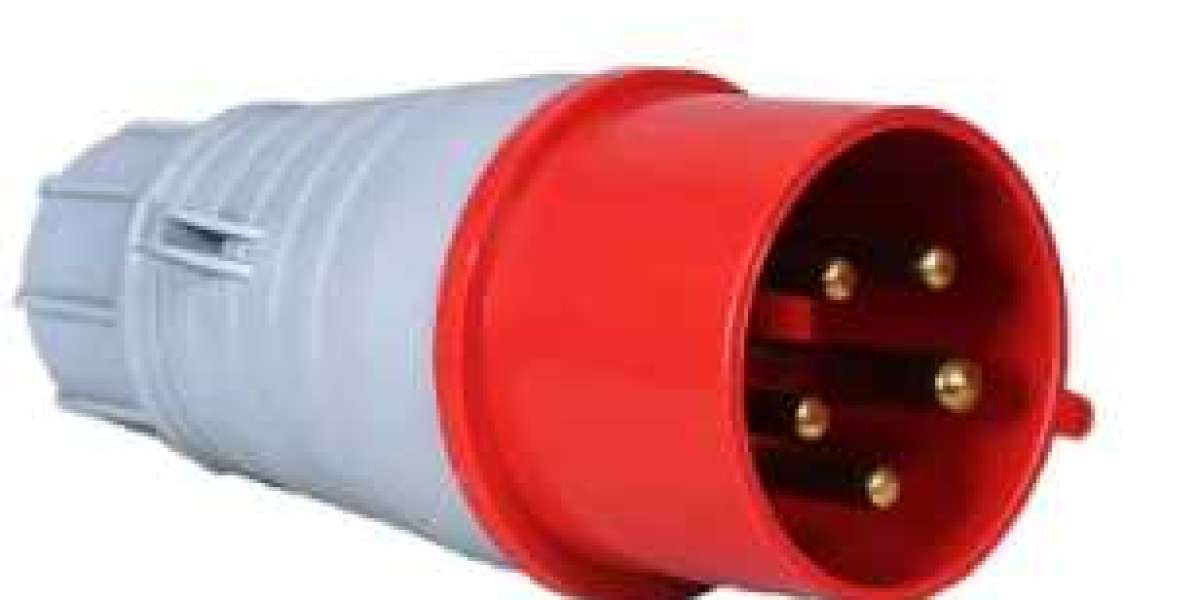In the growing landscape of manufacturing, energy efficiency, and workplace safety, reliable electrical connections are more important than ever. One crucial component in industrial setups is the Industrial Plug , a device that ensures a secure and consistent connection between equipment and power sources. Although often overlooked by non-professionals, this plug plays a central role in environments where durability, precision, and stability are non-negotiable.
With the rise of automation, smart factories, and mobile workstations, the demand for power components that are both flexible and dependable has increased significantly. Unlike residential plugs, which are typically designed for light-duty use, an Industrial Plug is made to handle greater power loads, operate in challenging conditions, and meet rigorous safety standards. This is particularly important in settings such as warehouses, construction sites, assembly lines, and temporary power setups for events or outdoor operations.
The most recognizable trait of these plugs is their robust design. They often include thicker casings, locking mechanisms, and temperature-resistant materials that can endure harsh conditions like dust, humidity, and temperature fluctuations. In many cases, they're also color-coded or keyed to prevent incorrect connections — a small but critical feature that helps reduce downtime and avoid damage to machinery.
For beginners in the industrial or commercial space, understanding the different plug options is key to building a safe and functional system. Industrial Plugs come in multiple configurations based on voltage, current, and pin arrangement. This ensures compatibility with a wide variety of equipment, from heavy machinery and power tools to mobile lighting and cooling systems. Choosing the right configuration isn't just about fit; it's also about ensuring that equipment receives the correct and stable supply of power, which is essential to both performance and safety.
Beyond compatibility, placement also matters. Many companies now integrate power supply points in flexible locations like floor boxes, wall-mounted stations, or modular panels that allow for easy upgrades. This type of planning is especially useful in industries where machinery is frequently moved or reconfigured to match production changes. With an industrial-grade plug, this mobility becomes simpler and safer, without compromising performance.
The modern workplace also demands improved energy management. With industries pushing toward greener, more sustainable operations, energy-efficient power distribution systems have become more than a trend — they're a necessity. Industrial Plugs that are designed for minimal heat loss, precise current control, and longer lifespan contribute to this shift by reducing energy waste and maintenance requirements. They are small components with a big impact on the overall system's efficiency.
In sectors like agriculture, logistics, event production, and even public infrastructure, portable equipment is becoming more common. Mobile generators, temporary workstations, and on-the-go repair tools all require quick and safe access to power. The Industrial Plug supports these applications by offering a rugged solution that remains secure under constant movement or outdoor exposure.
Another growing trend is the rise of hybrid workspaces that combine digital monitoring with traditional machinery. In these environments, consistent connectivity is vital. When sensors, controllers, and interfaces rely on stable power, even brief interruptions can lead to delays or data errors. Choosing a plug system that supports uninterrupted power flow helps reduce those risks and keeps integrated systems running smoothly.
In the field of education and training, the Industrial Plug is now being introduced earlier in technical programs. As trade schools and apprenticeship programs modernize their curriculums, students are learning not just how to install these components but also how to design systems that optimize their use. This reflects the growing awareness of how even the smallest hardware decisions can affect system performance, safety, and cost-effectiveness over time.
Nante has developed a product range that meets these varied industrial demands with thoughtful engineering and application flexibility. Whether for heavy manufacturing or mobile event setups, Nante's Industrial Plug solutions are designed to integrate smoothly into modern infrastructure while supporting practical safety and efficiency goals. Their range supports diverse industry requirements and aligns with new standards in workplace resilience.
To explore the full selection of plug options and find the right fit for your specific needs, visit www.nante.com. From light-duty connections to heavy industrial use, Nante offers practical solutions for professionals looking to power their equipment with confidence.







